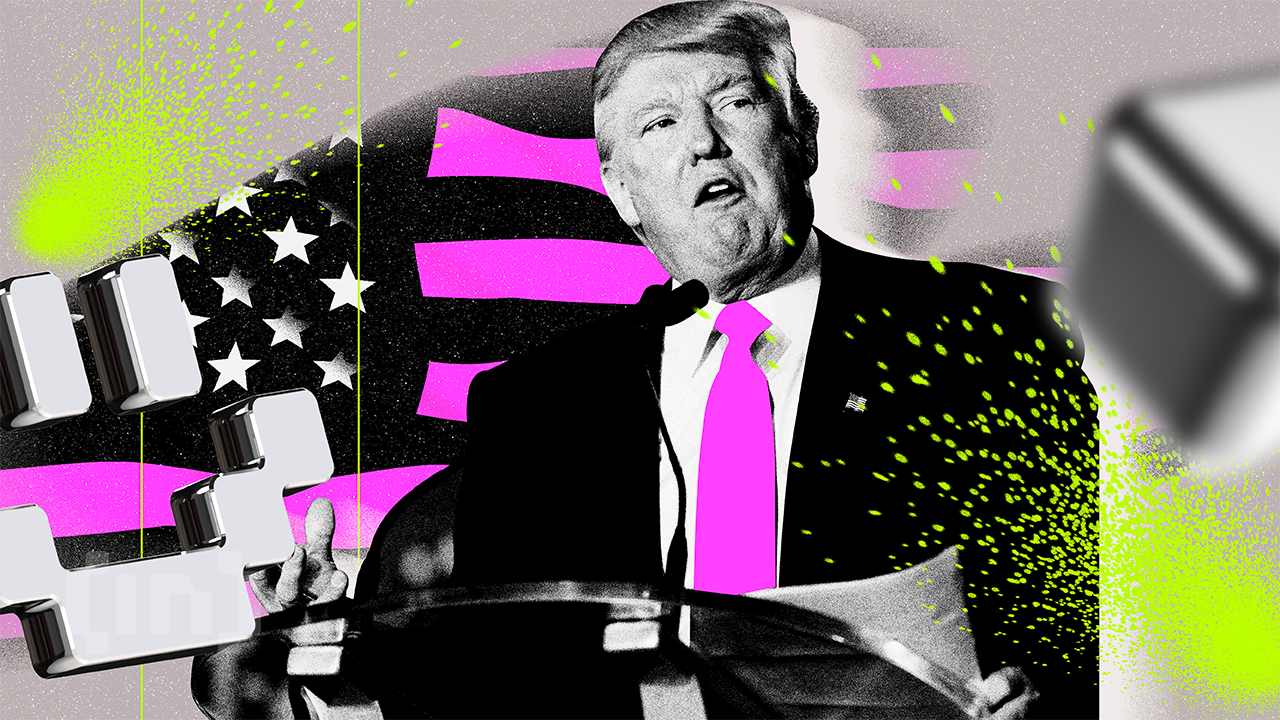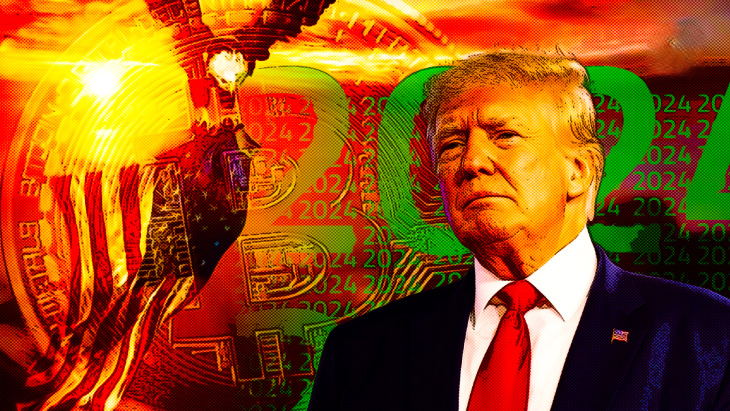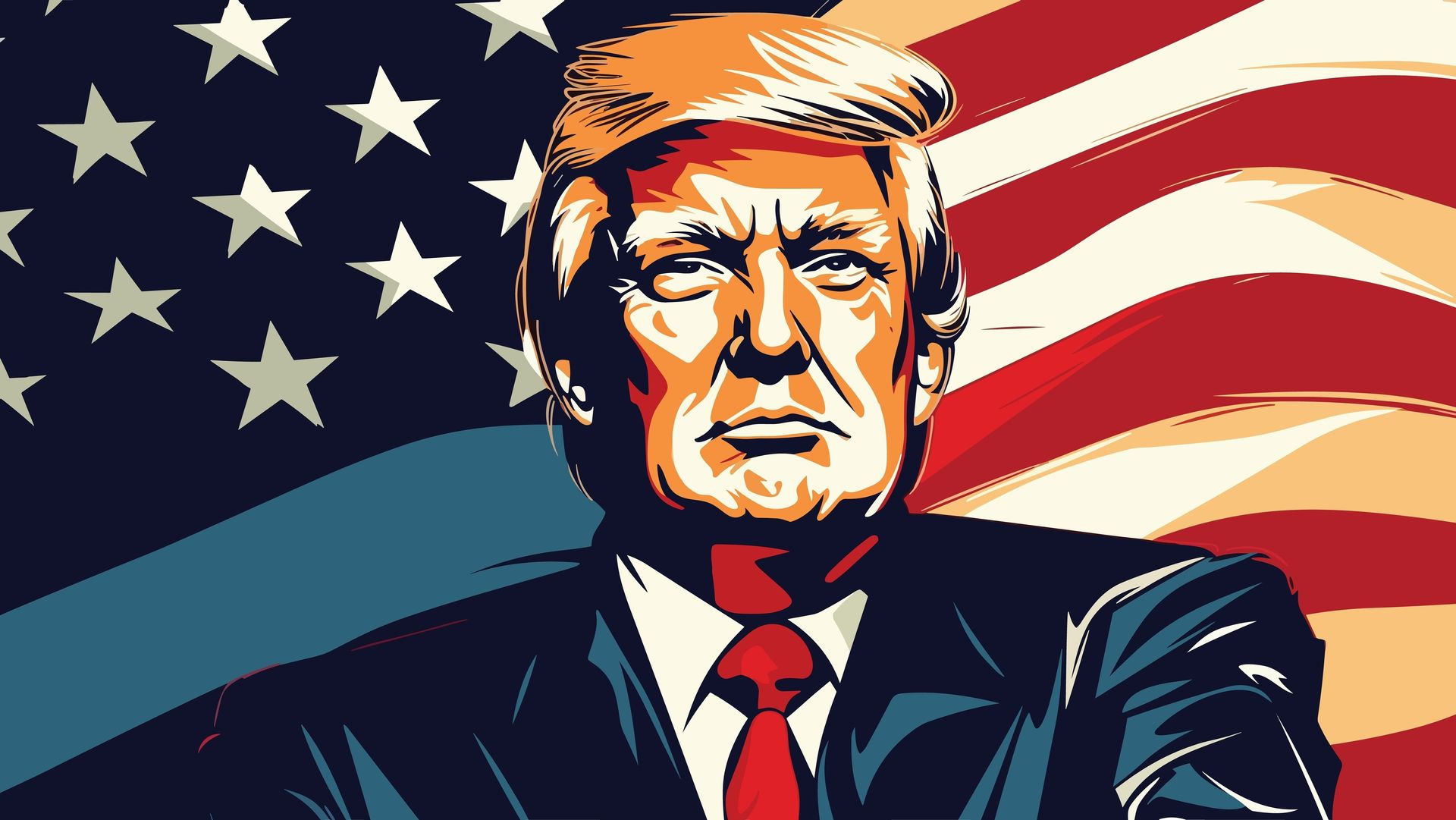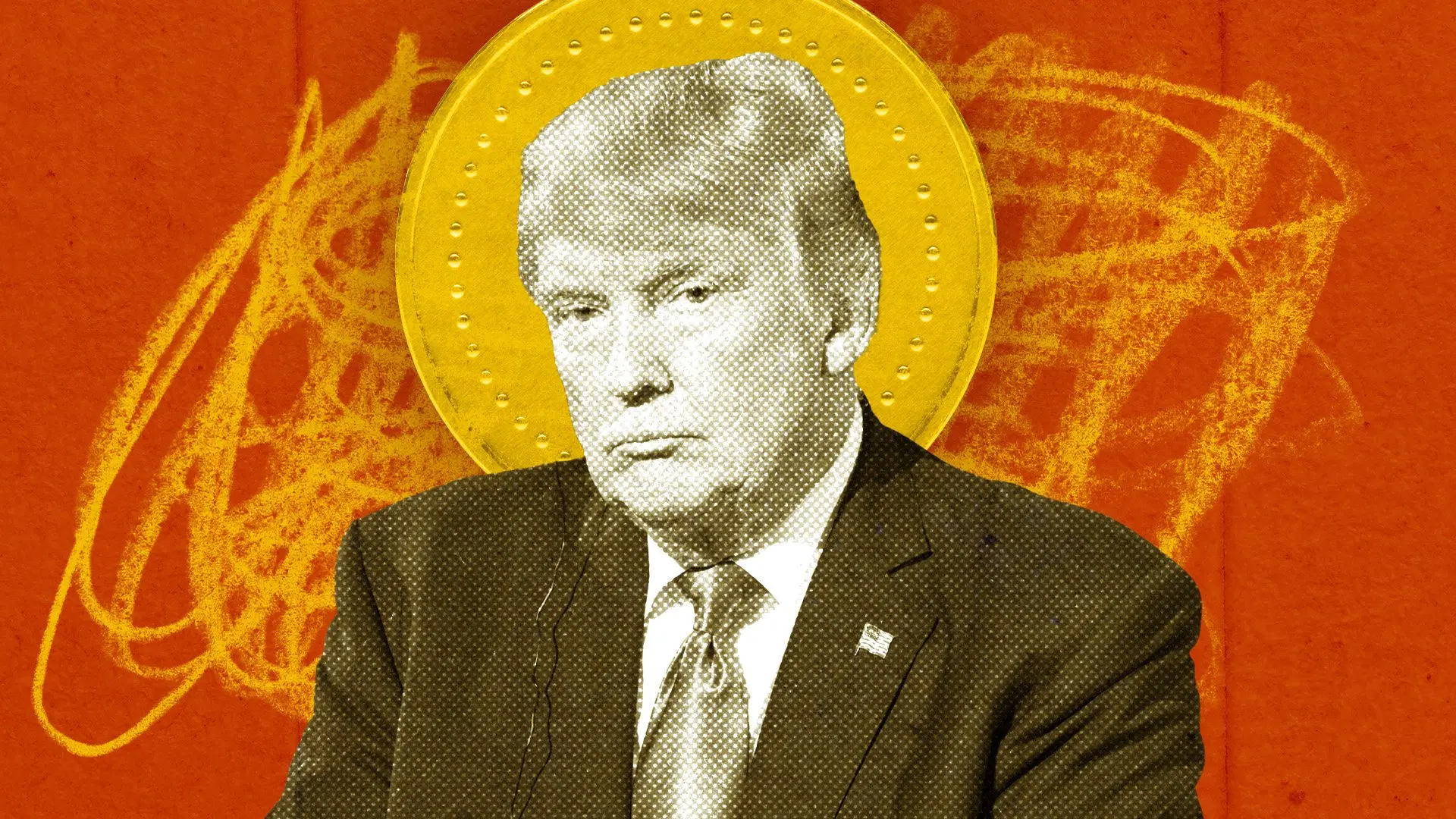The Donald Trump Agenda for Bitcoin on 2025: What Investors Need to Know
Wondering about the Donald Trump agenda for Bitcoin on 2025? With a potential return to the White House, Trump has shifted to a pro-crypto stance. This could bring substantial changes to the industry. This article delves into Trump’s agenda for Bitcoin and what it could mean for investors and the broader crypto market.
Key Takeaways
- Donald Trump has significantly shifted from a crypto skeptic to a supporter, aligning his campaign with crypto-friendly policies to attract a growing base of digital currency enthusiasts.
- David Bailey, CEO of Bitcoin Magazine, is playing a pivotal role in shaping Trump’s cryptocurrency policy, aiming to create comprehensive executive orders to legitimize and regulate the digital asset market.
- The Trump campaign’s engagement with influential figures like Elon Musk and the acceptance of crypto donations underline its commitment to integrating cryptocurrency into its platform, potentially impacting the global regulatory landscape and market sentiment.
Introduction
Since leaving office, President Trump, the former president, has not only invested in crypto but also ventured into the world of NFTs, signaling a stark transformation in his outlook towards the digital currency sphere. With his sights set on a possible return to the White House, Trump’s campaign trail is abuzz with discussions of Bitcoin and other cryptocurrencies. The future he paints is one of a crypto-friendly Trump administration, a stark contrast to the historically tepid, if not adversarial, stance from Washington.
Investors and crypto enthusiasts alike are eyeing these developments closely, understanding that the final decision of the next president could drastically shape the future of the industry. The possibility of a seismic shift in the government’s crypto policy is not just idle speculation but a statement of intent from a man who once held—and may yet again hold—the highest office in the country.
Trump’s Transition to Pro-Crypto Policies

The metamorphosis of former president Donald Trump from a crypto skeptic to a supporter has been nothing short of remarkable. His investments in digital currencies and the issuance of his own NFT have both underscored and fueled this transition. The Trump campaign officials, many of whom are Trump allies, have been vocal about this newfound crypto-friendly outlook and its potential to redefine the cryptocurrency policy landscape.
This pivot to a pro-crypto stance is not merely for show; it represents a calculated strategy to appeal to a base of voters who are increasingly engaged with Bitcoin and other digital assets. By aligning with the cryptocurrency industry, Trump is positioning himself as a forward-thinking leader ready to embrace the future of finance. The implications of such a shift are profound, with the potential to bring about a more crypto-friendly environment in the presidency that could ripple throughout the economy.
The Role of David Bailey in Shaping Crypto Policy
Navigating the complexities of cryptocurrency policy requires the insight of industry experts, and David Bailey, CEO of Bitcoin Magazine, has stepped into this role with gusto. His broad advisory role with the Trump campaign is a testament to the growing recognition of cryptocurrency’s potential impact on the economy and financial systems worldwide. Bailey’s influence extends beyond mere counsel; his active collaboration is shaping the very foundation of Trump’s cryptocurrency policy.
Bailey announced his involvement via the social media platform X, sparking debates within the crypto community. While some see this partnership as a strategic move to advance the cause of digital currencies, others are wary of the personal endorsement this collaboration implies. Nevertheless, Bailey’s vision is clear: he wants to craft a comprehensive executive order that Trump could enact on day one, should he return to office.
The ambition is to catapult the United States into a leadership position in the global crypto arena.
Proposed Executive Orders for Digital Assets
The executive orders drafted by David Bailey, in collaboration with the Trump campaign, are poised to shape the future of the cryptocurrency industry. Addressing critical concerns such as market integrity and consumer protection, these orders signify an intent to provide clear regulatory guidelines for digital assets. Trump’s potential ‘Day 1’ executive order represents a proactive step towards legitimizing cryptocurrencies and fostering an environment where innovation can thrive.
Key to these proposals is a commitment to:
- Mitigating the risks associated with digital currencies, including money laundering and terrorism financing.
- Promoting financial inclusion.
- Reducing the cost of cross-border transactions.
These are two areas where blockchain technology can have a transformative impact. By backing technological advancements in blockchain, the Trump campaign underscores the importance of secure and efficient payment systems within the broader US economy.
Potential Impacts on the Crypto Industry

The prospect of a Trump victory is stirring up the crypto industry, with predictions of a global ‘Bitcoin space race’ taking shape. Trump’s increasing emphasis on Bitcoin and other digital assets on the campaign trail is indicative of the strategic importance he places on appealing to new voter demographics. A historical precedent exists; Trump’s past criticisms of Bitcoin momentarily influenced its market price, demonstrating how political figures can sway crypto markets.
David Bailey’s prognostication of a space race scenario is not just a metaphor; it underscores the potential for a geopolitical shift in how major world powers engage with cryptocurrency. Should Trump’s pro-crypto policies come to fruition, it could catalyze a chain reaction, prompting other nations to reassess their stance on digital currencies and potentially harmonize international regulations. The ripple effect of U.S. policy shifts could thus extend far beyond its borders, reshaping the global landscape of cryptocurrency regulations.
Collaboration with Elon Musk and Other Influencers

In the world of cryptocurrency, influence is power, and Trump’s engagement with Elon Musk epitomizes the convergence of tech innovation and political strategy. Discussions around cryptocurrency policy between these two titans are not only frequent but signal a recognition of the sector’s growing importance in the political realm. Musk’s influence on the crypto market is well-documented, with his endorsements capable of causing significant price fluctuations.
The Trump campaign’s consideration of inviting Musk to speak at the Republican convention speaks volumes about the desire to align with influential figures in the crypto space. Such collaborations serve as a potent tool to galvanize support, especially from younger voters who are attuned to Musk’s vision for innovation. It’s a strategic maneuver that underscores the campaign’s commitment to integrating cryptocurrency into its platform, with entrepreneur Vivek Ramaswamy playing a key role in facilitating these high-level dialogues.
Reactions from the Financial System and Federal Reserve
The potential return of Trump to the White House casts a long shadow over the financial system, with the Federal Reserve and other regulatory bodies bracing for the possible repercussions. Heightened regulatory measures against cryptocurrencies are on the horizon, which could inject a dose of volatility into market sentiment. Trump’s skeptical stance towards digital currencies has previously spurred fears of stringent oversight, which could impede the freedom that traders and investors currently enjoy.
Banks and private stablecoin issuers, in particular, are sounding the alarm bells, worried that the introduction of a central bank digital currency (CBDC) could upend their lucrative payment systems. The Federal Reserve, for its part, is thoroughly exploring the technical and financial infrastructure necessary for a CBDC, amidst concerns about surveillance and the potential to block digital transactions. Such developments would represent a significant shift in the U.S. economy, with far-reaching implications for consumers and the finance industry alike.
Comparisons with Biden’s Cryptocurrency Policies
The cryptocurrency policies of current president Joe Biden stand in stark contrast to the pro-crypto overtures made by Trump. Biden’s administration has shown a willingness to wield regulatory power over digital currencies, as evidenced by the veto of legislation that would have eased SEC rules on crypto asset custodians. SEC Chair Gary Gensler, appointed under Biden, has pursued an aggressive enforcement strategy against crypto firms, indicating a comprehensive regulatory approach.
Despite the differences in policy, a bipartisan group of twenty-one Democrats joined Republicans in challenging Biden’s veto, reflecting a divide in the Democratic Party’s stance on crypto regulation. Former President Donald Trump has been quick to criticize Biden’s crackdown, urging the cryptocurrency traders to throw their support behind his campaign as he promises more crypto-friendly policies. This juxtaposition of regulatory philosophies between Biden and Trump underscores the political stakes involved in shaping the future of the cryptocurrency industry.
The Libertarian Party Convention and Crypto Support
Donald Trump’s surprise appearance at the Libertarian Party convention was a strategic play to court a new set of voters, particularly those with a strong inclination towards Bitcoin and crypto. The convention, which hosted sub-groups like the Bitcoin Caucus, revealed the divergent factions within the Libertarian Party, struggling with an identity crisis after years of electoral defeats. Trump’s pledge to commute Ross Ulbricht’s sentence was a calculated move to win over the crypto-friendly attendees, despite a mixed reception from the crowd.
The boos that Trump faced at the convention reflect the challenges he must navigate to garner the support of this constituency. However, his campaign’s focus on digital assets continues unabated, as he seeks to leverage the Libertarian Party’s affinity for self-custody and financial autonomy to strengthen his political base. The push for crypto acceptance at the convention is indicative of the broader shift towards digital currencies within political discourse, a trend that Trump is keen to exploit.
Campaign Donations from the Crypto Community

The Trump campaign’s acceptance of crypto donations is a bold statement of alignment with the burgeoning digital asset industry. This move not only demonstrates support for cryptocurrency companies but also positions the campaign to benefit from the backing of industry political action committees. By appealing to a younger, tech-savvy electorate, Trump is tapping into a demographic that is increasingly involved with cryptocurrencies.
Accepting donations in Bitcoin, Ether, and US Dollar Coin, the campaign is leveraging Coinbase’s platform to facilitate contributions within the confines of U.S. election laws. While the anonymous nature of these transactions raises questions about fund source verification, the Federal Election Commission’s 2014 decision allows for the valuation of bitcoin contributions based on market value at the time of receipt. The Trump campaign’s strategy reflects a broader aim to amass a significant war chest, with David Bailey mentioning a goal of raising $100 million to ensure the next President is pro-Bitcoin.
Addressing Inflation Concerns
Amidst the discussions of cryptocurrency and its role in the future of finance, concerns about inflation loom large. Trump’s agenda, marked by tax cuts and other economic policies, has been scrutinized for its potential to exacerbate inflationary pressures. The White House has even referred to the extension of Trump-era tax cuts as an ‘inflation bomb,’ signifying a worry that such policies could increase costs for middle-class families.
Economists have voiced warnings that Trump’s broader economic strategies could contribute to inflation, with some forecasting an increase in prices by as much as 1% over the next few years. These concerns are not without merit; they raise questions about the balance between fostering a crypto-friendly environment and ensuring the stability of the broader US economy.
Market Reactions and Investor Sentiment
The markets are sensitive to the winds of political change, and Trump’s potential re-election is no exception. Market analysts are wary of the possibility that new tax cuts could lead to ballooning deficits, causing disruptions in financial markets. Meanwhile, the prospect of a Trump victory is seen as a harbinger of more crypto-friendly policies, aligning with the interests of digital asset firms and potentially boosting investor sentiment.
The tension between market stability and the embrace of a rapidly evolving digital asset landscape is palpable. Investors are weighing the possible outcomes, factoring in both the risks and opportunities that a crypto-supportive administration could present. As the political narrative unfolds, the markets will undoubtedly remain vigilant, ready to react to the shifting tides of regulatory and fiscal policy.
Summary
Our excursion into the Donald Trump agenda for Bitcoin in 2025 reveals a complex tapestry of political maneuvering, market dynamics, and regulatory considerations. With Trump’s transition to a pro-crypto stance, the former president’s potential return to office could herald a new era of digital asset policies. These proposed changes, coupled with the influence of figures like David Bailey and Elon Musk, suggest a future where cryptocurrency holds a more significant position in the economic and political discourse.
As we conclude, it is clear that the crypto industry stands at a pivotal juncture. The potential for a Trump administration to initiate a global ‘Bitcoin space race’ and reshape the cryptocurrency landscape is both an exciting prospect and a source of apprehension. Investors and industry players must remain informed and adaptable as the interplay between politics, policy, and digital currencies continues to evolve.
Frequently Asked Questions
What changes to cryptocurrency policy might we expect if Trump is re-elected?
If Trump is re-elected, we can expect changes to cryptocurrency policy that aim to establish clear regulatory guidelines, promote financial inclusion, support blockchain technology, and mitigate financial crimes associated with digital currencies. These changes would likely reflect Trump’s proposed executive orders.
How has Trump’s attitude toward Bitcoin changed since his presidency?
Since leaving office, Trump has changed from a Bitcoin skeptic to a supporter, even investing in crypto and issuing his own NFT, and has highlighted digital assets in his campaign.
Will Trump’s crypto-friendly policies affect the broader financial system?
Trump’s potential crypto-friendly policies might lead to increased regulatory measures that could affect market sentiment, volatility, and provoke reactions from the Federal Reserve and the financial system. This may have a significant impact on the broader financial system.
What role does Elon Musk play in Trump’s cryptocurrency agenda?
Elon Musk has been in discussions with Trump regarding cryptocurrency policy, reflecting the campaign’s effort to align with influential figures and insights in the crypto space. This indicates Musk’s involvement in shaping Trump’s cryptocurrency agenda.
How might Trump’s broader economic agenda impact inflation?
Trump’s economic agenda, including tax cuts and tariffs, could potentially contribute to inflation by causing price increases that impact the economy.

